Piracy May Spur Manga Sales
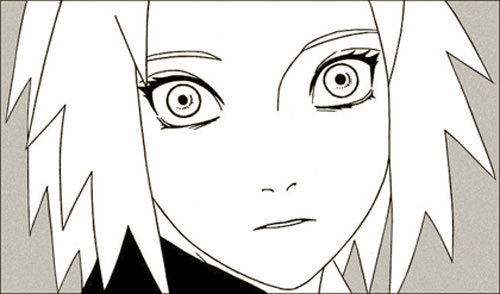
The impact of the Internet and file sharing on licensed content sales has been a hot topic of discussion in recent decades. It seems intuitively that sales of licensed content, including music, films, books and games, should be reduced, because users have the opportunity to download the same content for free. But the Internet at the same time works as an advertising platform. Users get the opportunity to learn about works that they would never have met, if not for their free distribution via the Internet. Which of these trends is stronger?
Quite a lot of research has been done on the impact of piracy on music and film sales; see the results of numerous studies in cumulative reviews by Leibovitz (2006) , Oberholzer and Strumf (2010) ,Danaher, Smith, and Telang (2013) . But the effect on book sales is poorly understood. Especially for the sale of manga comics.
Digital books are now widespread. In the USA, they bring publishers more than 40% of the profit, and in Japan - more than 10%. People are gradually getting used to reading books on various electronic devices, including ordinary computers, laptops and smartphones - so publishers may well be afraid that piracy will affect sales.
Japanese researcher Tatsuo Tanaka from the faculty of economics at Keio University contributed to this interesting topic. On December 29, 2016, he published a research paper on the impact of piracy on comic book sales in Japan.
Japan is the world's largest comic book market. There sales are three times higher than sales in the United States, and the comics themselves account for 36.1% of the book market.
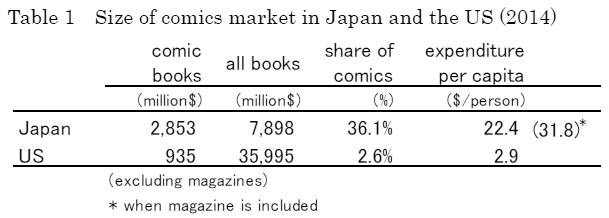
In both countries, the comic book market is an oligopoly; in the USA, Marvel Comics and DC Comics publishers control 100% of the market in the top 20 category and 96% in the top 50 category of the most popular books. In Japan, the market is shared by Shuei-sha, Kodan-sha, Shougakkan and KADOKAWA (98% in the top 20 category).
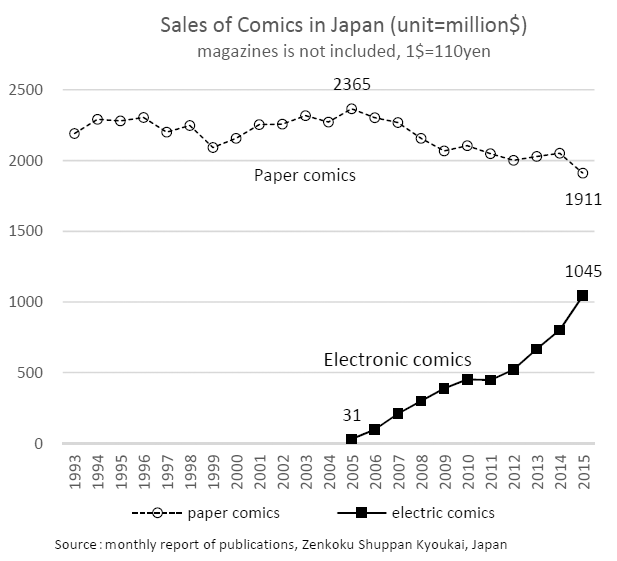
Sales of paper and electronic comics in Japan
The author chose the topic of the Japanese comic book market in connection with high-profile statements by the Japanese anti-piracy organization CODA (Content Overseas Distribution Association). She insists that the losses from foreign piracy in 2014 are double the profits from legal sales. Naturally, such high-profile statements need to be verified.
Manga Defenders Project
CODA, on its own initiative, conducted an extensive experiment called the Manga Anime Guardian Project from July 2015 to March 2016 - it provided the factual basis for this study. Each publisher has selected some of their classic comics as goals in this project. CODA massively deleted unlicensed copies of these particular comics from all possible file sharing services. Accordingly, they remained only on a small number of sites that were difficult to find. The author of the scientific work made an assumption that it is possible to compare the sales of comics, which became the goal of mass removal from the Internet under the CODA project, and other comics.
An analysis of past studies on the impact of piracy on book and music sales shows that there is an endogenous effect. When content becomes popular, its sales and illegal distribution increase simultaneously., which leads to a serious positive correlation between sales and the level of pirated distribution. Thus, for a qualitative analysis of the sequence of events and causal relationships, exogenous shock is most appropriate - external events, such as forced removal of copies from the Internet, as in the CODA experiment. In this case, we can compare the sample that was exposed to exogenous shock with the control sample that did not. Endogenous shock experiments have often shown that sales of legal music and films increase after successful harassment of pirates by law enforcement agencies - be it the closure of MegaUpload, the introduction of a three-strike system in France or anti-piracy legislation in Sweden. However, studies based on a real experiment have not been conducted with books,
The study revealed a dual effect, depending on whether the comic book series was completed or not. It turned out that for incomplete series (the release of which is ongoing), piracy does indeed partially have a substitute effect, reducing sales in the first time after the release of the next comic book. On the other hand, for completed series, piracy, on the contrary, stimulates sales a bit .
The table shows the correlation between the number of sites on the Internet where a pirated version of the comic is available, and sales of the comic.
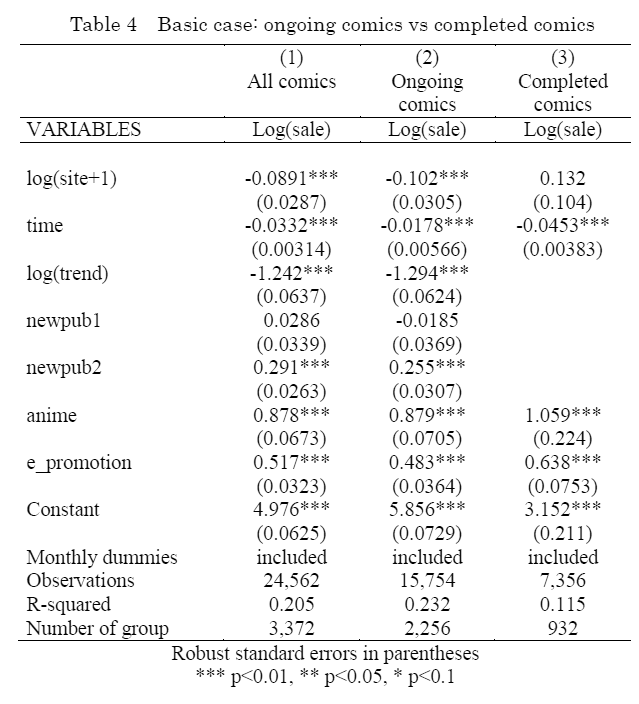
Thus, the Internet works as an advertisement for old manga series that are no longer advertised by the publisher. This “advertising effect” is clearly visible on how sales elasticity correlates with the removal of comics from the Internet, depending on the number of months that have passed since publication.
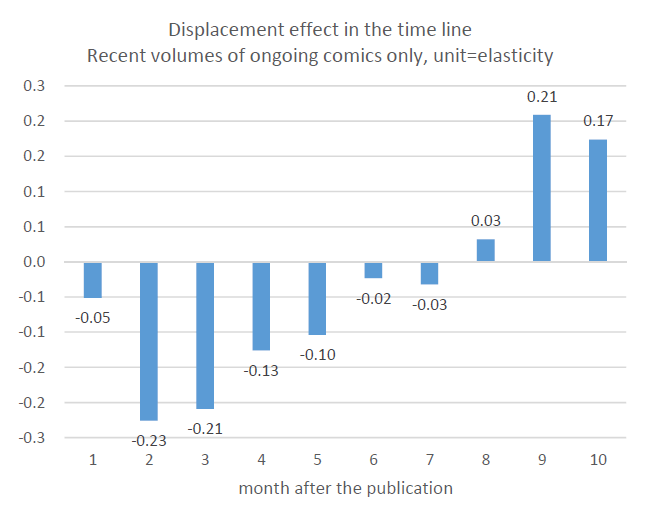
In other words, when 6-8 months pass after publication, it becomes unprofitable for the publisher to fight against the distribution of illegal copies on the Internet, because they really serve as advertisements, remind people of the old comic book series and stimulate sales.
